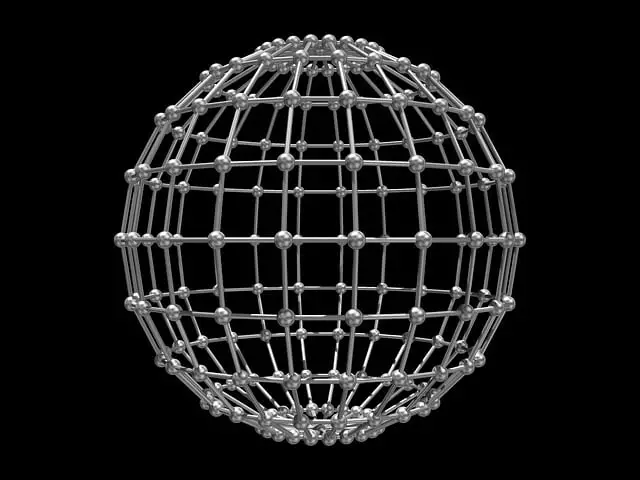Unleash peak physical performance through strategic sports nutrition, focusing on macronutrients (carbohydrates, proteins, fats) and micronutrients (vitamins, minerals, electrolytes). Brewing kratom tea in a coffee pot is an effective, natural way to enhance recovery and sustain energy levels without jittery side effects. This method supports athletes' conditioning by combining hydration with gentler energy sources, especially beneficial for post-workout aid. Timing meals correctly—pre, during, and post-workout—is crucial for optimal performance and muscle recovery, with consistency being key. Natural remedies like kratom tea offer game-changing benefits for athletic success without compromising health or endurance. Learn how to make kratom tea in a coffee pot for an innovative, effective sports nutrition strategy.
“Unleash your athletic potential with peak physical conditioning through sports nutrition. This comprehensive guide delves into the essential strategies for optimal performance, from understanding the foundation of sports nutrition to mastering balanced diets, micronutrient importance, and effective hydration techniques.
Discover how timing meals pre, during, and post-workout can revolutionize recovery, and explore innovative methods to enhance your training journey. Learn why these practices are crucial, not just for athletes, but for anyone aiming to excel in their physical pursuits.”
- Understanding Sports Nutrition: The Foundation of Peak Conditioning
- Balanced Diet for Athletes: Macronutrients and Their Role
- Micronutrients Matters: Vitamins, Minerals, and Electrolytes
- Hydration Strategies for Optimal Performance
- Timing Your Meals: Pre, During, and Post-Workout Nutrition
- Enhancing Recovery with Sports Nutrition Techniques
Understanding Sports Nutrition: The Foundation of Peak Conditioning

Sports nutrition is an essential aspect of achieving peak physical conditioning, and understanding its principles can be a game-changer for athletes and fitness enthusiasts alike. It involves optimizing your diet to fuel your body’s performance potential during exercise or training. By carefully considering macronutrients (proteins, carbohydrates, and fats) and micronutrients (vitamins and minerals), you can enhance recovery, sustain energy levels, and support muscle growth and repair.
One simple way to incorporate sports nutrition into your routine is by learning how to make kratom tea using a coffee pot. Kratom, derived from the Mitragyna speciosa plant, has gained popularity for its potential therapeutic effects, including pain relief and mood enhancement. When brewed as tea, it can provide a natural energy boost without the jittery side effects of caffeine. Combining this knowledge with a strategic dietary approach will lay the foundation for reaching new heights in physical conditioning.
Balanced Diet for Athletes: Macronutrients and Their Role

Maintaining peak physical conditioning requires more than just intense training; proper nutrition is an equally vital component, especially for athletes. A balanced diet tailored to meet the unique demands of athletic performance involves a strategic distribution of macronutrients – carbohydrates, proteins, and fats. Carbohydrates, often overlooked despite providing the primary energy source for muscles, are essential for replenishing glycogen stores, particularly after exhaustive training sessions.
Proteins play a crucial role in muscle repair and recovery, facilitating the rebuilding process after intense exercise. Adequate protein intake helps prevent muscle breakdown and promotes the growth of lean muscular tissue. In contrast, fats, often maligned, serve as a concentrated source of energy, supporting various bodily functions and hormone production while also aiding in nutrient absorption. The key lies in finding the right balance, mirroring the intricate harmony that athletes strive for in their training regimens.
Micronutrients Matters: Vitamins, Minerals, and Electrolytes

Maintaining peak physical conditioning requires more than just hitting the gym or training intensively; proper nutrition plays an equally vital role. Among the various aspects of sports nutrition, micronutrients—including vitamins, minerals, and electrolytes—are often overlooked but are essential for optimal performance and recovery. These tiny powerhouses support a wide range of bodily functions, from energy production to immune system health and muscle contraction.
For athletes, especially those with rigorous training regimens, ensuring an adequate intake of micronutrients can be challenging. A simple method to incorporate these vital nutrients is by preparing herbal teas infused with rich micronutrient sources like kratom. Interestingly, using a coffee pot to brew kratom tea offers a unique and efficient way to both hydrate and boost your micronutrient levels, potentially enhancing your overall physical conditioning journey.
Hydration Strategies for Optimal Performance

Hydration is a cornerstone of peak physical conditioning, and for athletes, staying properly hydrated can significantly impact performance. A simple yet effective strategy is to incorporate kratom tea into your routine, especially during intense training sessions or competitions. Kratom, when brewed as tea using a coffee pot, offers a unique blend of compounds that aid in hydration and provide a gentle energy boost without the jitters associated with caffeine-rich drinks.
The process of making kratom tea in a coffee pot is straightforward. Simply add dried kratom leaves to hot water, steep for a few minutes, and strain before drinking. This method allows for precise control over strength and temperature, ensuring you get the optimal hydration without overwhelming your system. Regularly hydrating with kratom tea can enhance endurance, improve focus, and support overall athletic performance.
Timing Your Meals: Pre, During, and Post-Workout Nutrition

Timing your meals is a crucial aspect of sports nutrition that often gets overlooked. Whether you’re an athlete or simply looking to maximize your fitness potential, understanding when to fuel your body can significantly impact performance and recovery. Pre-workout meals should ideally be consumed 1-2 hours before training, providing your body with the necessary energy without making you feel heavy or bloated. Focus on carbohydrates for sustained energy release and include a small amount of protein to support muscle function.
During intense workouts, especially those longer than an hour, it’s essential to replenish electrolytes and maintain blood sugar levels. Sports drinks can be beneficial, but consider natural alternatives like coconut water or home-made electrolyte-rich infusions if you prefer to avoid artificial sweeteners. Post-workout nutrition should occur within 30 minutes to one hour after your session. This is when your body is most receptive to nutrients for muscle recovery and repair. Aim for a balance of carbohydrates, proteins, and healthy fats to refuel and support muscle growth or repair, depending on your fitness goals. Experiment with different meal timings and nutrient combinations to discover what works best for you, but remember, consistency is key.
Enhancing Recovery with Sports Nutrition Techniques

In the pursuit of peak physical conditioning, sports nutrition plays a pivotal role, especially in accelerating recovery after intense workouts. One innovative technique gaining traction is the strategic use of natural remedies like kratom tea. Prepared using a coffee pot, this method offers a unique advantage by combining the benefits of kratom’s active compounds with a familiar brewing process. The result is a soothing beverage that can aid in muscle recovery, reduce inflammation, and enhance overall well-being post-exercise.
Kratom tea made through this simple process provides a gentle yet effective way to support the body’s natural healing mechanisms. By facilitating faster recovery, athletes can maintain consistent training routines without sacrificing performance or endurance. This natural approach not only complements sports nutrition but also contributes to a holistic understanding of optimal physical conditioning, where recovery is as critical as intense training sessions.
In conclusion, achieving peak physical conditioning requires a holistic approach, and sports nutrition plays a pivotal role. By understanding the fundamentals of sports nutrition, athletes can optimize their performance through balanced diets, adequate micronutrient intake, effective hydration strategies, and precise meal timing. Additionally, incorporating science-backed recovery techniques can significantly enhance overall athletic prowess. Remember, proper nutrition is not just about what you eat; it’s about understanding your body’s needs and using tools like hydration and timed meals to fuel your active lifestyle—even something as simple as learning how to make kratom tea in a coffee pot for post-workout recovery.






